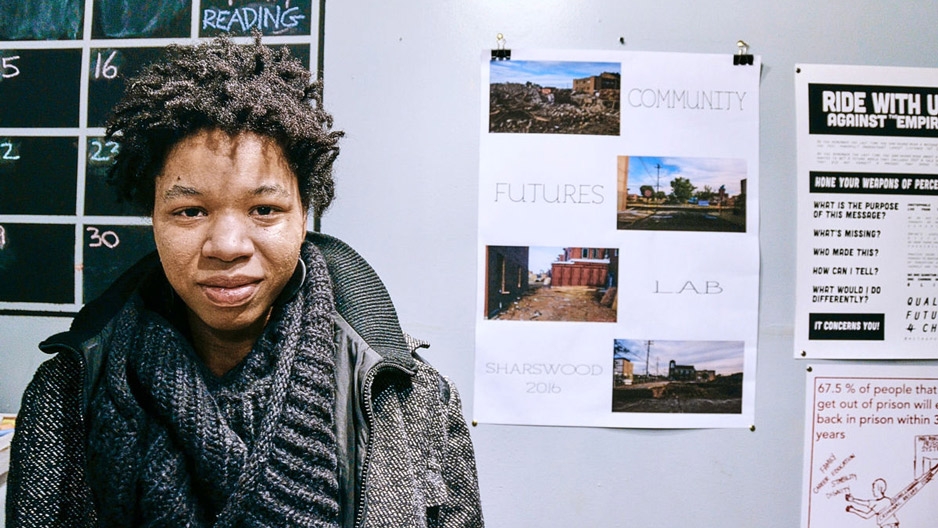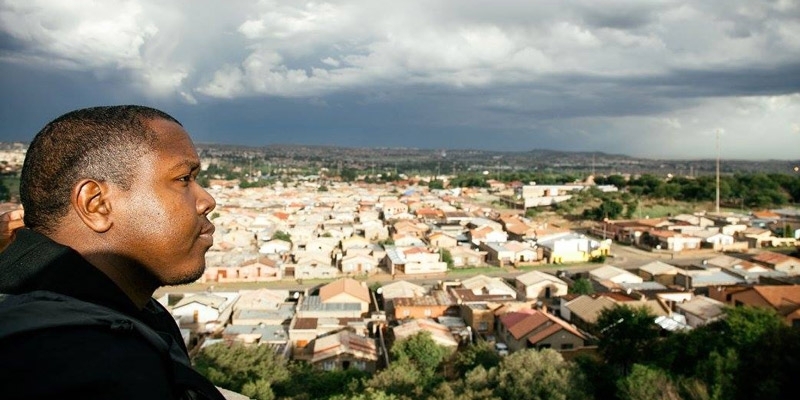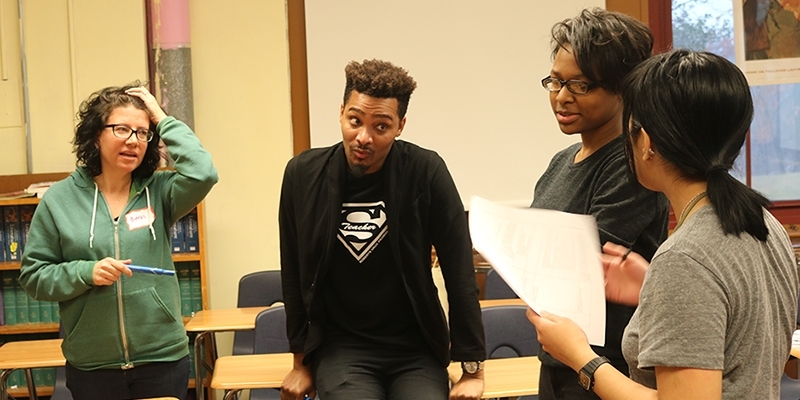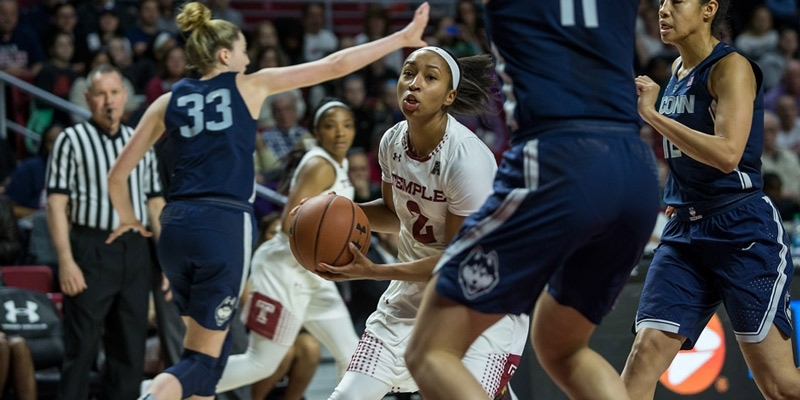Making space for the future
A Temple alumna is creating a movement around the past, present and future of North Philadelphia.

At first glance, the small storefront that sits close to the corner of 22nd Street and Ridge Avenue looks like it could be home to a dry cleaner or a service shop. But it’s so much more.
Not only is it a place for discussing big ideas about time and space; it’s a community center, a research facility and celebration hall.
On a Sunday evening in February, several women funneled in through the glass doors of the Community Futures Lab with books under their arms. As they entered the space, they were greeted by Rasheedah Phillips, CLA ’05, LAW ’08.
It was Lit Club night, and in addition to viewing Beloved, the film adaptation of Toni Morrison’s award winning novel, the group discussed themes around hauntings, community, time, temporality, memory, slavery and womanhood.
Last year, Phillips, who works full-time as a housing attorney, opened the Community Futures Lab in order to facilitate Community Futurisms: Time & Memory in North Philly, an ethnographic research project exploring the oral histories of residents of the Sharswood/Blumberg section of North Philadelphia.
“The area is currently undergoing a major redevelopment project after years of deep poverty, educational inequality, and high crime,” Phillips said. “The project uses art as activism by asking participants to imagine the future through literature, remember the past through oral history and preserve the present through visual documentation.”
For Phillips, the past and present are tied to the future. In addition to the lab, she and her creative partner, Camae Ayewa, spearheaded the AfroFuturist Affair and the Black Quantum Futurism Collective.
Both the AfroFuturist Affair and the Black Quantum Futurism Collective run programming at Phillips’ lab inspired by ideas around Afrofuturism, quantum physics and African spiritual traditions.
“I formally discovered the concept of Afrofuturism when I graduated from law school,” Phillips said. “I’ve always been aware of popular black science fiction writers like Octavia Butler, but I had to purposefully search for others who were creating science fiction that involved black characters.”
A little investigation led her to communities of people of color who think just like she does.
She found that she wasn’t the only one interested in exploring where people of color might fall in the future. Social media platforms, networking events for black science fiction geeks, traveling exhibits, conferences and a number of writers whose stories reflected a future for blackness helped her to develop her own ideas around the concept.
“Both projects are about access and empowerment,” Phillips said. “They give people who often don’t see themselves reflected in the future—of their city or in pop culture tropes—an opportunity to take part in shaping the futures they want to see.”


